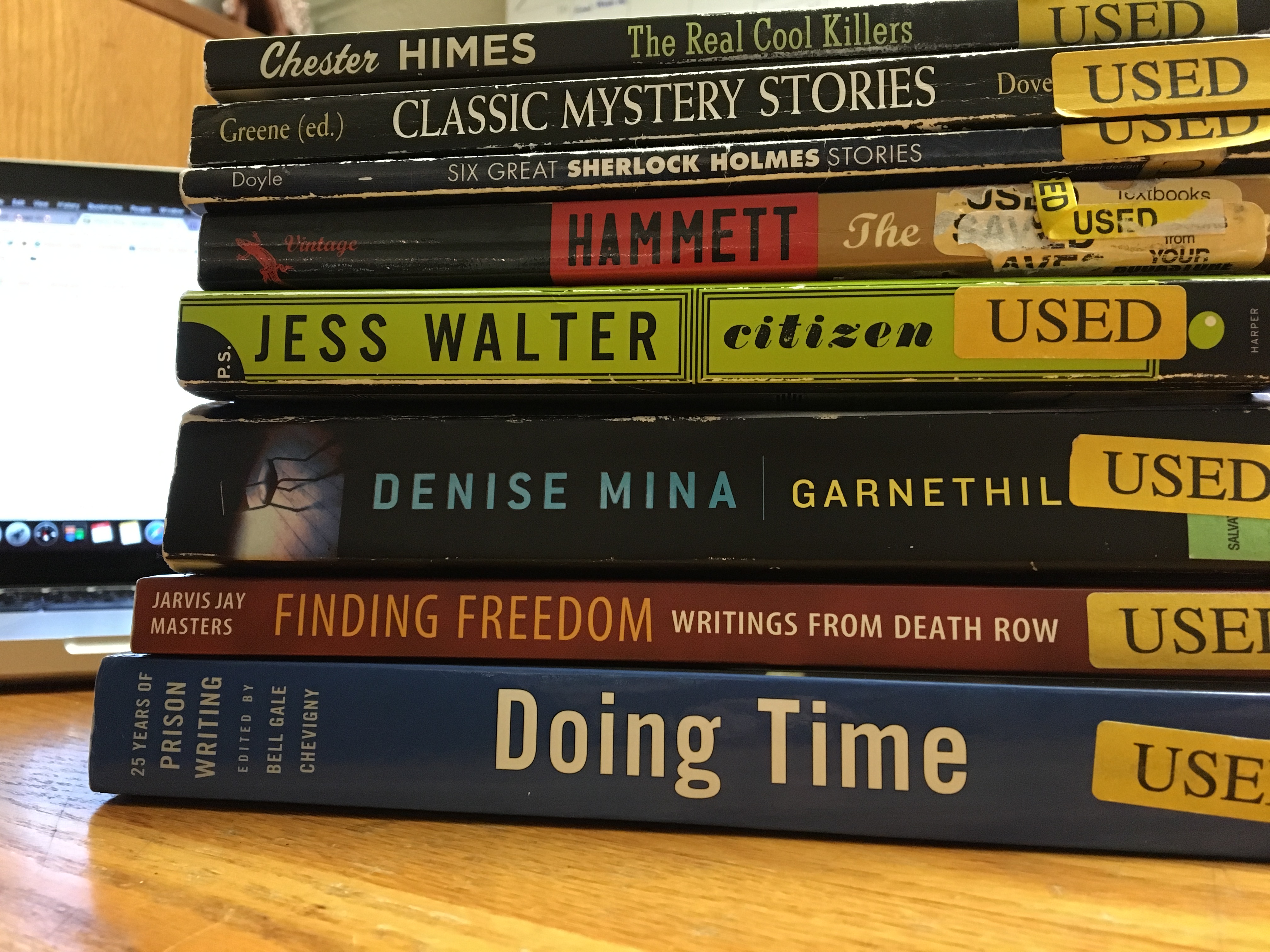“Sorry, I was in jail.”
Over the course of this semester, several people have gotten this exact message from me after I’ve taken over an hour to respond to their text. You’re not allowed to take any electronic devices into the facility. This all might sound a little bad but, no worries, my record is clean. So why do I spend my Thursday evenings in the Monroe County Correctional Facility? Ask my English professor.
As a part of the core curriculum at Nazareth, every student is required to take a Literature PEQ. Options range from Ethics in Literature, to Global Identities, to Short Story into Film but the course that always seems to fill up first when registration begins is Crime and Punishment in the USA, taught by Dr. Edward Wiltse. The class was developed about 18 years ago and originally centered around crime and detective fiction. It ran for a few years before Dr. Wiltse realized that a whole side of the story was missing: that of the criminal. Detective stories often follow the “good guy” as he takes down the “bad guys,” even though he may not be so good himself (spoiler alert: Sherlock Holmes was a cocaine addict) and we still do read a great deal of these tales. This semester, we’ve read and discussed works by Sir Arthur Conan Doyle, Edgar Allan Poe, and Susan Glaspell, to name a few. We’ve also dived into the world of the “hardboiled” detective with The Maltese Falcon, by Dashiell Hammett, and The Real Cool Killers, by Chester Himes, among others. My personal favorite books, however, have dealt with that missing side of the story. Doing Time and Finding Freedom are narratives that we’ve read, written by various incarcerated individuals about their experiences and the author of the latter is actually still on death row at San Quentin Prison.
Riveting as it is, it isn’t the literature that draws students to this course; it’s The Jail Project. The Jail Project can be watered down to a book club that includes Nazareth students and inmates at MCF, but it’s so much more than that. A few different groups (my class has three) of students go to the jail once a week to meet with a group of inmates who have been provided the books we are reading in class. The idea is that we can all get together, put our differences aside, and have a discussion about something we have in common, though our conversations rarely remain on topic. When we started, we had countless questions about life in jail and they had plenty for us about life as a student and each group was more than willing to answer the other’s inquiries. Over the six weeks, our group has built a relationship and learned – to the degree that’s appropriate – a good amount about each other. My all female group works with a group of male inmates and they tell us about everything from what daily life is like, to how much they miss their kids back home, to what they’re in for.
Although they’ve had tremendous success with the program for over a decade, Dr. Wiltse and Twig Hickam, an educational program coordinator at MCF, still have to fight year after year for the permission and resources to continue it. There are plenty of people who have various personal and political reasons for believing such an opportunity should not exist and while I could initially see bits and pieces of the argument, I disagree on every level after participating. Spending time in the jail has changed a lot of my perceptions about jail and criminals, which I feel like is something a lot of us need. I was nearly shaking when our MCF students (we try not to say inmates) walked into the first meeting because I had no idea what to expect from these guys. Once we got going, I felt so dumb for being so nervous. They’re not hardened criminals or stereotypical inmates, they’re regular people who found themselves on the wrong path. For example, we had one student who was 82 and serving time for the first time and another who was our age and in the process of applying for college. You really can’t judge a book by its cover, an ironic lesson to learn in a literature class. We’ve had some students come and go over the course of the program, which is bittersweet. We miss having them in our discussions but we know they’ve been waiting a long time to be released and have lives and family to get back to. Between the reading and The Jail Project, the class is a bit of a time commitment but the knowledge and experience I’ve gained is priceless and I would definitely take this course again if I could.

